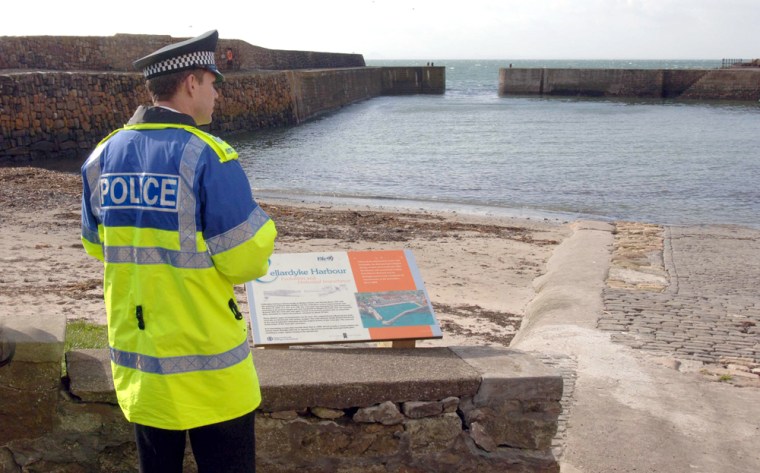Britain confirmed on Thursday the deadly H5N1 strain of bird flu, blamed for the deaths of more than 100 people worldwide over the past three years, had reached its shores.
The government announced new measures to prevent it spreading to poultry farms and Prime Minister Tony Blair urged people to remember that the risk of infection to humans was low.
“The lab results lead us now to believe we are dealing with H5N1 highly pathogenic avian influenza in a swan,” Scotland’s chief veterinary officer Charles Milne told a news conference.
The partially eaten carcass of the Mute swan was found late on March 29 in Cellardyke harbor in eastern Scotland. It was sent to a laboratory in Weybridge, southern England, for analysis two days later.
Amid a media frenzy over the discovery of H5N1 in Britain, officials and experts tried to calm public concerns about the risk to humans.
“This is not a human to human virus, it is something that is transmitted to poultry,” Blair told a news conference in Northern Ireland. “It’s only if humans are in direct contact with poultry that there is any risk involved.”
Doctor Jim Robertson from the National Institute for Biological Standards and Control said: “There is a better chance of a person winning the national lottery than catching bird flu in the U.K. today.”
Scottish officials announced new measures to prevent the spread of the disease to domestic poultry farms as has happened in some other European countries, including France and Germany.
Milne said vets would test birds at all poultry farms in the 1.8-mile protection zone it has set up around the place the swan was found.
Wild bird risk area
The authorities also set up a 965 sq mile “wild bird risk area” in Scotland.
The government said it had ordered poultry farmers within this area to keep their flocks indoors. There are 175 poultry centers in the zone with some 3.1 million birds, of which 260,000 are free range.
Milne said that since March 29 officials had tested 14 other birds found dead in Scotland, including 12 swans.
In Northern Ireland, a Department of Agriculture spokeswoman said four dead swans were also being tested there for the H5N1 strain of bird flu. “They are not hot suspects or anything at the moment,” the spokeswoman said. “They are routine tests.”
Government officials reviewed bird flu contingency plans at a London meeting on Thursday and concluded that “all relevant steps are being taken”.
The discovery of H5N1 in a wild bird in Britain was “an unwelcome and important development from the point of view of poultry health, but there are no implications either for human health or consumers”, the National Farmers’ Union said.
Meantime, a leading bird flu expert said Thursday there was no evidence that the virus was showing any signs of mutating into a form that would be more infectious in humans.
But Ian Brown, head of avian influenza at Britain’s Veterinary Laboratories Agency, an official lab that tests for the virus, also said that it was extremely difficult to track bird flu as it mutated.
Although hard for humans to catch, scientists fear bird flu could mutate into a form that can pass easily between humans, causing a pandemic.
Brown was asked by Reuters if the bird flu virus is showing any signs of mutating into a form that would be more infectious in humans.
“There is no evidence at the moment,” he said. “We know that this virus will mutate under normal circumstances, but we have to stress that we don’t understand fully what would make this virus more dangerous.”
Milne said it was not known whether the dead swan was from a local or migratory flock but was most likely to be local. He said properly prepared poultry and poultry products were entirely safe for human consumption.
Bob McCracken, past president of the British Veterinary Association, said contact between wild birds that may be infected and poultry should be kept to a minimum.
“We also have to work on the assumption that there is some spread among wild birds,” he said.
In Egypt, Health Ministry spokesman Iman Mohammed Abdel Gawad said a 16-year-old girl died of H5N1, the country’s third death. Gawad also said that an 8-year-old boy has tested positive for the virus, the country’s 11th case, including the three deaths.
The girl and the boy are from the same province in the Nile Delta, north of the capital. Both families raised poultry, Abdel Gawad said.
The National Farmers’ Union said Scotland’s poultry industry is worth more than $202 million per year.
